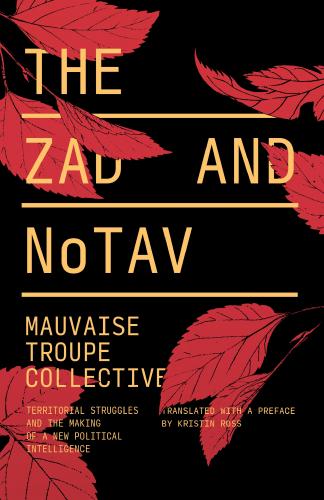The powerlessness of the prefecture and of Vinci on the zone was patently obvious: legal decisions were systematically being transgressed and construction attempts sabotaged. The police now stayed out of an area that those in power had begun to call a ‘lawless zone’. In autumn, ignoring a prefectural ban of any sowing or planting on that day, the ‘Sow your zad’ assembly, along with COPAIN and ADECA, organized a collective sowing of a 24-hectare area that Vinci had designated as the place where work crews would begin.
The COPAIN farmers
The Collective of Professional Agricultural Organizations Indignant about the Airport Project (COPAIN) started up in June 2011. With this collective, farmers outside the zad took on a role in the struggle, especially during the period of the evictions and afterwards. In January 2013, COPAIN took a new step by occupying the farm at Bellevue and its lands.
Taking Bellevue, we were talking especially about seizing buildings. For a month, we asked ourselves if they were going to throw us out one week or the next … then finally we said, ‘Shit, there’s land there. We have to do something with that land.’ It made us start thinking about land redistribution, taking care of land collectively. And all that was tied in directly to the agricultural projects of the occupiers.
– Marcel
The question of food production and land usage was taking on a bigger place in the movement. ‘Sow your zad’ in 2013, which COPAIN participated in, took up the task of discussing and collectively organizing the agricultural problematics of the zone. In the following months, land was taken from farmers who had collaborated with Vinci and numerous collective cultivations were started. What was happening on the zad in turn breathed new life into the region, the farm networks shaking up the corporatism and the classical union demands.
2014–16: Future Zad and Zads Everywhere!
In 2013, the developers began to rebound and announced ‘the removal of protected species’ from the bocage, as a preliminary to construction getting underway. In January 2014, on the occasion of a meeting of the local committees, the movement decided to block the region in case of an intervention in the zone, to prevent any preliminary work beginning and then to return to demonstrate in Nantes.
A wager that succeeded: on 22 February more than 60,000 people and 500 tractors submerged the city. If the forbidding of any demonstration in the centre of the city gave rise to intense confrontations with the police, the demonstration did not break down and the crowd stuck together. Despite media hysteria, the condemnations by political leaders, and the internal tensions exacerbated by the demonstration, the movement did not give way under attempts to divide it. The government retreated once again and postponed the beginning of construction until ‘all legal appeals underway have been exhausted’.
Nevertheless, new areas of repression sprung up in the course of the year with a wave of arrests based on matching police and intelligence service files with fine-combed examinations of videos of the 22 February demonstration. People began to gather regularly outside the Nantes courthouse. Several people spent several months behind bars, supported by the movement’s solidarity funds.
On 25 October 2014, the murder of Rémi Fraisse by the police during confrontations on the Testet zad led to a wave of demonstrations, heavily repressed and largely ignored by left organizations. Marches against police violence proliferated for several weeks, notably in Nantes and Toulouse. The ‘zadists’ were now on everybody’s lips, all over the newspapers, to the point of entering the dictionary. Two days after the inauguration of the Roybon zad (Isère), the construction on the amusement park there was halted.
The developers could not allow this intolerable revolt against the market capture of territory and existences to spread. The state got to work curbing the epidemic by delimiting and extracting the sources of the plague, duly named and given folkloric dimensions: ‘zadists’, ‘black bloc’, or ‘violent youth’. So many summary categories that threatened to paralyze the movements who set out to go beyond them. In the security context of the post-terrorist attack of January 2015, the intelligence law made use of the terrorist threat to gag opposition, and the Macron law freed entrepreneurs from a host of legal constraints susceptible of slowing down development projects.* At Testet, the productivist farmers of the FNSEA organized to encircle the zad and enable the police to evacuate it.
Конец ознакомительного фрагмента.
Текст предоставлен ООО «ЛитРес».
Прочитайте эту книгу целиком, купив полную легальную версию на ЛитРес.
Безопасно оплатить книгу можно банковской картой Visa, MasterCard, Maestro, со счета мобильного телефона, с платежного терминала, в салоне МТС или Связной, через PayPal, WebMoney, Яндекс.Деньги, QIWI Кошелек, бонусными картами или другим удобным Вам способом.
